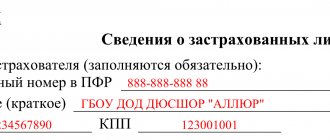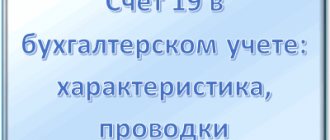Changing jobs is a common occurrence in modern society. In the process of moving from company to company, many citizens try to maintain previously earned work experience.
This is done so that in the future, when the need arises to receive cash payments for temporary disability, to calculate length of service, or to apply for a pension, the duration of continuous work and the availability of the corresponding length of service will be correctly calculated. Our article will tell you when work experience is interrupted after dismissal.
What is continuous work experience?
Continuous work experience can be interrupted without legal consequences, but only if the reason was valid, for example, the birth of a child, etc. This feature of the concept seemed quite logical in the system of Soviet labor legislation. This is how this term was interpreted in labor legislation until 2006. In particular, continuity of experience was maintained if the citizen found a new job within 1 to 3 months, depending on certain conditions. In some situations, continuous work experience after voluntary dismissal was “frozen” for an indefinite period, for example, if a married couple moved to another area due to the transfer of one of the spouses, and the second could not quickly find a job. This was a very important indicator that influenced sick pay and the amount of pensions. This issue was regulated by Resolution of the Council of Ministers of the USSR dated April 13, 1973 No. 252.
In 2006, the Constitutional Court of the Russian Federation, by Resolution No. 16-O dated March 2, 2006, canceled this document, since the concept itself was recognized as inconsistent with the Constitution of the Russian Federation. The Constitutional Court can also formulate labor legislation if we follow the logic of the norms of the Constitution of the Russian Federation. The Constitutional Court considered that the use of the term “continuous work experience” violates the right of citizens to free work. Since then, no new interpretations of continuous work experience have been adopted. However, today there are several industries where it is still taken into account. But, unlike the term “work experience,” the indicator under discussion is not used so widely. Here are some examples:
- The length of work experience without interruptions is important in some cases when assigning temporary disability benefits, but now this does not always happen.
- In addition, such length of service is taken into account when assigning bonuses and benefits in certain professional fields.
- Sometimes employers in collective agreements provide for certain payments or bonuses for long-term work in one place.
- When applying for employment, continuity of work experience can be taken into account: the point here is this: the employer automatically pays attention to how long the employee worked at each specific enterprise and how many jobs he changed. This point has nothing to do with legislation and is not regulated anywhere.
In what cases is it not interrupted?
Continuity of work experience is maintained if the break between jobs is no more than two months.
These include:
- those who resigned due to the expiration of the contract from organizations located in the Far North and equivalent territories;
- those who returned from work abroad, dismissed from domestic and international organizations;
- immigrants from states with which a social security agreement has been concluded, the period is counted from the date of arrival in the country.
Remains valid for up to three months in cases of termination of the contract for reasons:
- reorganization, termination of activities, reduction of staff (numbers);
- illness, disability, the period is counted from the day of recovery;
- inability to perform work in the position (specialty) due to ill health;
- reducing the number of primary school classes if the contract is terminated with a teacher whose students have entered the fourth grade.
Remains valid upon termination of the contract with pregnant women, mothers until the child turns 14 years old, and a disabled child turns 18 years old.
Saved without taking into account the duration of the break in case of dismissal:
- an employee whose husband has been transferred to another location, the same applies to husbands;
- pensioners, including retirement.
Remains valid if three (four, if the reason is considered valid) weeks have not passed when changing jobs on the employee’s initiative.
Continuous work experience: how it is taken into account
Now, what length of service is considered continuous is determined differently. According to the norms of the Labor Code of the Russian Federation, this is the period during which the employee worked at the same enterprise. Although none of the articles of the Labor Code of the Russian Federation directly indicates this, this is clear from the meaning, for example, Article 121 of the Labor Code of the Russian Federation. At the same time, this indicator no longer affects the amount of sick leave or the amount of pension. The only thing it gives is allowances and benefits in certain areas. For example, when working as a teacher or doctor. Medical workers are entitled to receive an allowance for many years of work in the healthcare sector. In addition, in the Far North and in similar areas, wage supplements are given to those individuals who continuously work in such climatic conditions. Such regions, in accordance with Order of the Ministry of Labor of the RSFSR dated November 22, 1990 No. 3, include:
- Arhangelsk region;
- Irkutsk region;
- Chita region;
- Republic of Karelia;
- Komi Republic;
- The Republic of Buryatia;
- Tyva Republic;
- southern regions of the Far East and Krasnoyarsk Territory.
Temporary disability
Periods of temporary disability, as a rule, are associated with illness and in everyday speech are called sick leave. If continuous service does not have any effect on pension payments, then such intervals do.
It looks like this:
- with experience from one to five years - sixty percent of wages;
- up to eight years - eighty;
- If a person works in a company for more than eight years, then during periods of incapacity for work he is paid his full salary.
In many ways, this is one of the key aspects that really relies on continuity. Along with this, it is important to note that the difference is not so great, although noticeable. According to the Labor Code, the duration of sick leave is not regulated, the main thing is the presence of grounds for temporary inability to perform work, and a doctor’s conclusion about this. In the Russian Federation, the maximum insurance period is not specified in any regulation or legal opinion, but the employee is obliged to leave the place if there is a medical expert opinion regarding the inability to continue activities.
Sick leave is calculated on a daily basis. If it so happens that the limit of length of service, which affects the amount of benefits, fell during a period of temporary incapacity for work, then part of it will be paid like that, and the other with a higher percentage.
When can seniority be interrupted upon dismissal?
The length of service is interrupted regardless of the duration of the break in activity upon dismissal for the following reasons:
- for systematic evasion of the performance of official duties established by a contract or job description, or other internal regulatory documents of the enterprise;
- for absenteeism (that is, absence from work for 4 hours or more);
- for appearing in the organization in a state of alcoholic (or other) intoxication;
- in connection with the conviction of an employee, when the punishment, in accordance with the sentence, excludes the continuation of activities in the organization (not only imprisonment, but also correctional labor);
- in connection with a conviction for committing theft at an enterprise;
- for the commission by an employee performing educational functions of an immoral act or regarded as such that it makes continuation of the activity impossible;
- in connection with the imposition of a disciplinary sanction by management;
- in connection with the establishment of other guilty behavior of the employee, for which dismissal is provided as a sanction.
Can the period be interrupted after employment ends?
The working period can become unbreakable when, within 30 days from the date of termination of the first employment, the dismissed person finds a new place.
This procedure is established for employees employed in a variety of areas - commercial, state or municipal. The form of ownership of the company also does not matter. The only exceptions are certain groups of employees:
| 2 months for employment | 3 months to find employment |
|
|
With the next employment of a person who is already on pension, the length of service continues to remain unbroken. Based on a decision made by trade unions at different levels, the work experience that has become interrupted can be resumed.
When will the experience continue?
If you are wondering how much continuous work experience you have, how to calculate and take into account its duration, everything is simple: it is determined in days, calendar months and years. In particular, this is all the time recorded in the work book during which the employee had an employment contract. If an employee changes jobs, continuity is lost. The exception is when a person continues to work in the same structure and field, as in the case of teachers and doctors. If they remain in budgetary institutions and work in their specialty, questions about whether they have continuous work experience or how many days there was a break between employment usually do not arise in order to assign an allowance.
In addition, it should be taken into account that, by virtue of the Law of the Russian Federation of April 19, 1991 No. 1032-1, the following periods do not affect continuity:
- a period of official unemployment with the receipt of benefits in connection with this;
- the period of study in secondary and higher educational institutions for which a scholarship is paid;
- participation in public works on a paid basis,
- moving to another area in the direction of the employment center for employment;
- officially established temporary disability;
- maternity leave;
- being in compulsory military service or military training;
- participation in activities related to preparation for military service or alternative civilian service;
- performance of state duties (for example, election as a deputy to legislative bodies).
Countable periods
Periods counted:
- service in the army, the Ministry of Internal Affairs, if no more than three months have passed since it;
- service, maternity pay, child care benefits for a female military personnel dismissed due to the expectation of the birth of a child, if she enters the organization, for study until the child is 1.5 years old;
- employment, paid practice of a student at a university, secondary vocational educational institution, graduate school, residency;
- studying in colleges, vocational schools, if no more than three months have passed since their graduation;
- advanced training, retraining, vocational training, if they were preceded by employment or service in the army, the Ministry of Internal Affairs;
- labor as chairman of a collective farm in the direction of party and Soviet bodies;
- absenteeism of an unfairly dismissed and reinstated employee.
How to calculate length of service using a work book
You can calculate your continuous work experience using an online calculator. In this case, it is enough to enter the data in the appropriate fields, and the calculation will be performed automatically.
When making calculations using a regular calculator, you first need to calculate the working time at each enterprise and add up the periods if the break was of a legal duration or occurred for a good reason.
An example of calculating the continuous work experience of a specific employee.
| Company | Start of activity, date of employment | Contract termination date and reason | Continuous work experience |
| LLC "Klyuch" | 02.04.2015 | 07/01/2015, liquidation of the organization | 3 months |
| LLC "Kadr" | 05.09.2015 | 01/26/2017, at your own request | 1 year 7 months |
| LLC "Snast" | 11.02.2017 | 13.12.2019 | 2 years 5 months |
When is continuity maintained?
According to the general standards in force since September 1983, continuity of service when leaving the workplace at one's own request was maintained for 21 days. This calculation applies if the employment contract is terminated without good reason solely at the request of the employee.
Despite the fact that this norm infringes on the constitutional rights of citizens, it is still applied by the Insurance Fund of the Russian Federation.
The general rules for calculating length of service also include cases where a break can take a longer period and the length of service is still counted as continuous.
The break can be up to, but not exceed, two months:
- Upon expiration of the employment contract for persons who worked in the harsh conditions of the Far North or in regions equivalent to it in terms of climatic characteristics.
- Upon release from work in various organizations or enterprises located abroad.
- When moving from other countries of persons with whom the Russian Federation has concluded agreements on social guarantees (security). The countdown starts from the moment of dismissal at the previous place of work in another state.
The break can be up to, but not exceed three months:
- Upon termination of labor contracts with employees due to liquidation (closing), reorganization of organizations and enterprises, as well as reduction of their workforce.
- When returning to work or when looking for a new job after a long period of temporary incapacity, including those caused by disability. The period of a three-month break in these cases is counted from the moment of restoration of working capacity and documentary recording of this fact.
- Upon dismissal on the basis of inadequacy for the position or due to identified health problems that prevent further employment in this workplace.
- When primary school teachers are laid off due to a reduction in the number of children enrolled in school.
- When entering work or study after serving in the armed forces of the Russian Federation, the Ministry of Internal Affairs, as well as state security agencies. The three-month period begins from the date of termination of service.
There are also preferential categories of employees for whom the break period is calculated according to different principles.
For example, women who were fired from work can resume working without losing their continuous work experience, provided they return to work before their child reaches a certain age:
- up to 14 years of age for single mothers (adoptive parents or guardians);
- up to 16 years of age for persons raising a child with a disability.
Also, the length of service will be maintained regardless of the break if:
- The dismissal occurred at one's own request, but for a good reason (for example, in connection with the relocation of a spouse to another city).
- Dismissal was due to reaching retirement age or old age.
- The citizen was engaged in advanced training, underwent practical training while studying at higher or secondary specialized educational institutions (including postgraduate studies and residency).
What is the impact of working in one organization?
Currently, continuous work experience is used only in certain areas to assign salary bonuses. In addition, when answering the question: what does continuous work experience affect? You can remember the norms of Article 17 of Federal Law No. 255-FZ of December 29, 2006. It provides for the use of length of service when determining the amount of temporary disability benefits due to an employee. Although usually, to calculate these benefits, the insurance period is taken into account as a general rule.
However, it happens that the duration of the insurance period for the period before 01/01/2007 will be less than the duration of the continuous work experience. In this case, it is possible to assign benefits in accordance with previously valid regulatory legal acts for the same period, i.e., take as the calculated value the time during which the employee worked without breaks or with breaks that do not violate the flow of the established period.
For whom and when is it important?
The requirement of continuous work experience continues to have a serious impact on a number of professions and specific categories of citizens. First of all, the following categories of employees should include:
- who work in the field of medicine;
- workers as rescuers;
- workers in the educational sector;
- working in government agencies. Continuity of work experience helps representatives of various professions receive:
- add. days for main vacation;
- increases to the total salary.
After the introduction of special amendments that were applied to the pension legislation of Russia, in those situations where the total length of insurance service is less than the continuous working experience, when determining the amount of the pension, it is the length of continuous or length of service that is taken as the basis.
Pensions and benefits
Currently, the employee’s length of service without interruptions does not affect the amount of the pension, as well as the right to early retirement. Therefore, in connection with the assignment of a pension, the question: how to calculate continuous work experience is not worth it. An important role here is played by the period during which a person was registered in the pension insurance system, and the employer paid insurance contributions to the Pension Fund for him (the so-called insurance period). There is currently no increased pension for working in one place for a long time. The main thing is that all payments in favor of the employee are official, and that the employer makes timely and full insurance contributions from them. If a person works in one place for a long time, but receives a dull salary, the deductions to his personal account in the Pension Fund of the Russian Federation are scanty. Therefore, such a future pensioner cannot count on a decent pension.
Does it matter for pensions?
Previously, a person’s NTS had significant weight in calculating a pension. This period influenced the amount of the benefit, as well as the date of retirement. Then changes were made to the pension system. Therefore, to calculate pensions for Russian citizens, the insurance period began to be taken into account. And the most important thing on which the size of the benefit depends is the availability of paid insurance premiums by employers for their employees.
A direct relationship has emerged: the more contributions made for employees, the higher the amount of their pension. Many employers still pay wages in envelopes. Employees must understand that by agreeing to such conditions, they themselves are stealing their pension in the future.
To receive a well-deserved pension, a person must currently have 10 years of service and 16.2 pension points. The new pension reform plans to gradually increase these indicators. Thus, from 2024, Russian residents will retire with 15 years of insurance coverage and 28.2 points.
At the same time, grace periods for retirement are provided for many citizens. This mainly concerns workers in the healthcare system, education, and enterprises where workers occupy positions associated with difficult working conditions.
For residents working in the Far North or in an area equated to the Far North, there is the opportunity to retire 5 years earlier than for other Russian citizens. But for this they need to complete a certain insurance period in the specified areas (20 for women, 25 for men).
For the convenience of citizens, there is an online pension calculator on the official website of the Pension Fund. Citizens can already calculate the size of their expected pension. If necessary, take measures to increase it. And to do this, you need to have a well-paid job so that the employer regularly makes insurance contributions to form a pension.
Why is it needed?
The duration of work allows you to correctly and accurately determine the size of your future pension, which depends on the amount in the personal account of a person insured by the Pension Fund.
All citizens receive a social pension upon reaching a certain age. For men today it is 60 years old, for women – 55.
But this is also the age of those who have the right to count on insurance payments, a very substantial supplement to the social pension, which depends on length of service. The minimum length of service for a pension must be at least 7 years by this age. In the near future, this period is planned to be increased to 15 years.
But length of service affects a number of other payments. For example, its value affects payments for temporary disability and benefits. The higher it is, the higher the payout.










